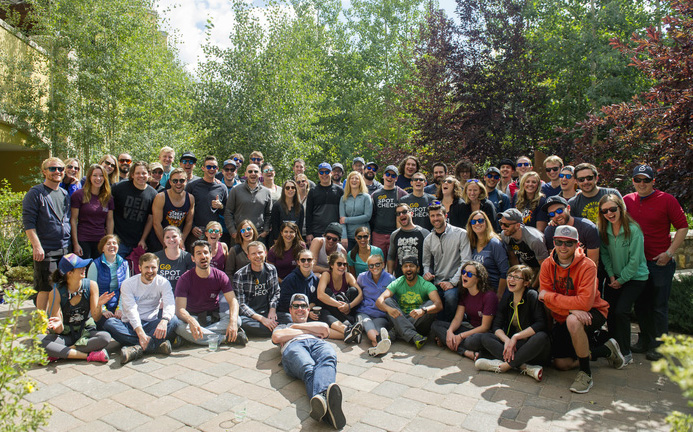After Matt Talbot started GoSpotCheck in May 2011, his big goal was to get field reps to stop using clipboards and to start firing up his startup’s mobile app instead.
A restaurant chain’s rep might use GoSpotCheck to upload pictures showing each sandwich is up to snuff. A wine company rep might enter a report about retail displays at a liquor store.
Now GoSpotCheck has scored $16.5 million in venture funding as it tries to make that data easier to use.
“It was a huge pain to collect this data,” said Talbot, 32. “Step two is, now you have this treasure trove of intelligence, what happens next?”
For Talbot, GoSpotCheck’s next move is to connect an event – say, the wine rep spots a missing retail display or a restaurant employee finds a sandwich shop is low on lettuce – to what he calls “lagging results.”
Maybe the data shows a coinciding loss in sales or lower customer satisfaction, he said, and could help to recommend ways to handle each situation.
“Based on the data, what should you do?” he said. “Is it wise to push for more displays or should you be pushing for more shelf space?”
To build those automated features, the 70-person company plans to hire 30 more employees across the board by year-end. Talbot said competition is fiercest for engineers, but that there are additional openings for product, marketing and customer service workers.
The growing company is also using its raise, disclosed Sep. 7 in a filing with the SEC, to expand its office space. Next spring, the startup plans to move into a three-story building built to suit, next door to its current LoDo headquarters.
The startup says this round, which includes Insight Venture Partners and Point Nine Capital, brings its VC haul to $26 million. Talbot said the company is not yet profitable, but declined to discuss other financial information in detail.
Customers range in size from those purchasing thousands of licenses for field reps to some purchasing tens of licenses, Talbot said. The food company Dannon and nut butter maker Justin’s are listed as customers on GoSpotCheck’s website.
For now, the startup’s focus is on marketing to consumer goods companies, business-to-business facilities managers and restaurants, while building an app that could one day be tailored to other applications.
Talbot said other software companies have designed mobile apps to suit much wider or narrower markets. Salesforce pitches a wider clientele, for example. Meanwhile, local startups like Field Squared in Denver or Skywriter MD in the Tech Center are going after a single vertical with mobile software for the energy industry and the healthcare industry, respectively.
Denver-based mobile app startup TrackVia, meanwhile, courts customers that manage large inventory and production processes.
After Matt Talbot started GoSpotCheck in May 2011, his big goal was to get field reps to stop using clipboards and to start firing up his startup’s mobile app instead.
A restaurant chain’s rep might use GoSpotCheck to upload pictures showing each sandwich is up to snuff. A wine company rep might enter a report about retail displays at a liquor store.
Now GoSpotCheck has scored $16.5 million in venture funding as it tries to make that data easier to use.
“It was a huge pain to collect this data,” said Talbot, 32. “Step two is, now you have this treasure trove of intelligence, what happens next?”
For Talbot, GoSpotCheck’s next move is to connect an event – say, the wine rep spots a missing retail display or a restaurant employee finds a sandwich shop is low on lettuce – to what he calls “lagging results.”
Maybe the data shows a coinciding loss in sales or lower customer satisfaction, he said, and could help to recommend ways to handle each situation.
“Based on the data, what should you do?” he said. “Is it wise to push for more displays or should you be pushing for more shelf space?”
To build those automated features, the 70-person company plans to hire 30 more employees across the board by year-end. Talbot said competition is fiercest for engineers, but that there are additional openings for product, marketing and customer service workers.
The growing company is also using its raise, disclosed Sep. 7 in a filing with the SEC, to expand its office space. Next spring, the startup plans to move into a three-story building built to suit, next door to its current LoDo headquarters.
The startup says this round, which includes Insight Venture Partners and Point Nine Capital, brings its VC haul to $26 million. Talbot said the company is not yet profitable, but declined to discuss other financial information in detail.
Customers range in size from those purchasing thousands of licenses for field reps to some purchasing tens of licenses, Talbot said. The food company Dannon and nut butter maker Justin’s are listed as customers on GoSpotCheck’s website.
For now, the startup’s focus is on marketing to consumer goods companies, business-to-business facilities managers and restaurants, while building an app that could one day be tailored to other applications.
Talbot said other software companies have designed mobile apps to suit much wider or narrower markets. Salesforce pitches a wider clientele, for example. Meanwhile, local startups like Field Squared in Denver or Skywriter MD in the Tech Center are going after a single vertical with mobile software for the energy industry and the healthcare industry, respectively.
Denver-based mobile app startup TrackVia, meanwhile, courts customers that manage large inventory and production processes.



Leave a Reply